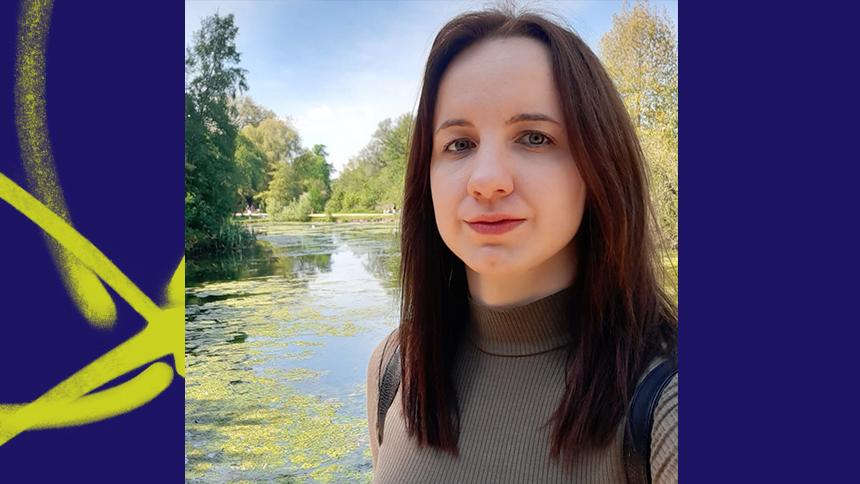Researching the role of the thalamus and how tau proteins spread in Alzheimer’s
Meet Barbara Sarkany, doctoral student at the University of Oxford.
Favourite things?
- Book – The Man Who Mistook His Wife for a Hat, by Oliver Sacks.
- Way to spend time – I love hiking and playing with my dog.
- Memory – When I tried out snorkelling as a child.
Why dementia research?
I was always impressed by the complexity of the brain, it is an amazing and mysterious structure.
As with the whole human body, the brain can also develop pathological changes, and with ageing the risk of diseases of the brain increases.

This is becoming more apparent as the world’s population ages – most of us can now expect to live well beyond our 60s.
One of the biggest consequences of ageing is dementia, which many of us know can cause great difficulties for patients and relatives, as well as the healthcare system.
My aim is to understand what happens to the brain over ageing and how it can be protected, to ultimately protect present and future generations of older people from the effects of diseases such as dementia.
How has Alzheimer’s Society supported your work?
I’m really grateful to Alzheimer’s Society for providing me with a PhD scholarship. This scholarship gave me an amazing opportunity to understand the brain and dementia. Moreover, we have networking meetings with their volunteers and they provide precious feedback.
What are you currently working on?
I investigate the role of the thalamus (a part of the brain) in Alzheimer’s disease. Most studies focus on the role of the hippocampus (another part of the brain), but there are a few studies indicating that the thalamus plays a crucial role.
I assess the spread of a type of protein called tau in the human thalamus and its effects on activity of cells in the thalamus of mice.
What difference do you hope this will make?
If we could gain a detailed picture of the spread of tau protein and its effect on brain cell activity, this might accelerate early diagnosis and drug development.
In what direction would you like to take your research in future?
I would like to find out the possible causes of late-onset Alzheimer’s. Importantly, ageing is the greatest risk factor for its development, but it is not well understood how gradual changes initially disrupt brain activity.
I hypothesise that proteins linked to the development of Alzheimer’s – like tau – appear earlier in inner areas of the brain such as the thalamus, before spreading outwards.
I’d like to understand the consequences of these proteins’ accumulation on the activity of vulnerable brain cells, to see if there are clues about how to slow down or prevent the progression of Alzheimer’s.
How can you help?
£6 could pay for 50 microscope slides – essential in spotting those tiny changes that happen in the brain with dementia.

